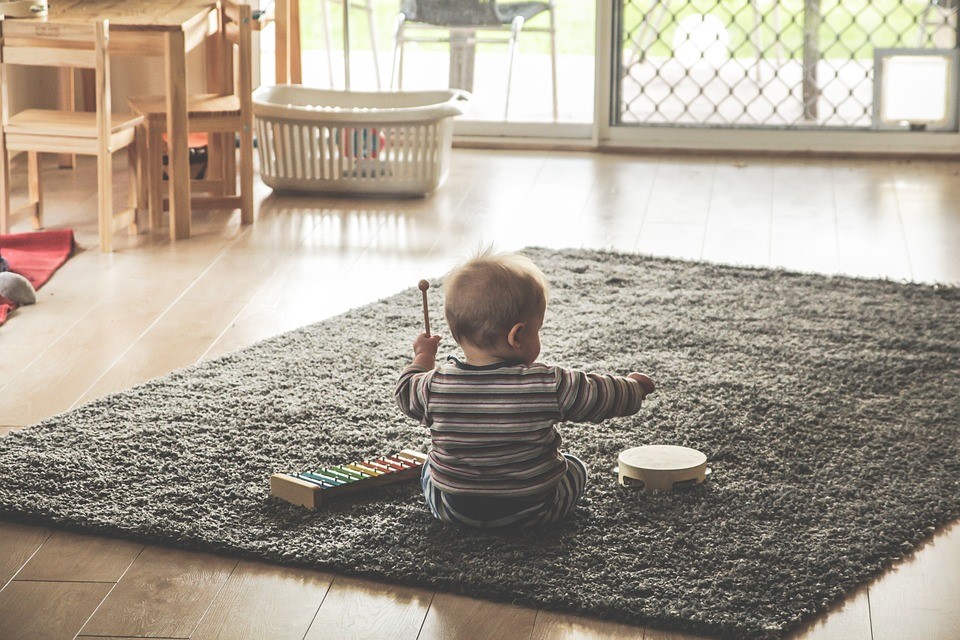Music is an everyday expression of our emotions, capable of soothing in times of pain and providing joy in times of happiness. Whether it’s classical, jazz, pop, indie, rock, or anything in between, music offers life and feeling, sometimes even expressing what we can’t possibly put into words.
But, the benefits of music don’t stop there. Nowadays, homes around the globe see parents aiming to support their children’s cognitive development by enrolling them in varying musical activities. As a baby, lullabies or silly songs could help you calm down during sickness spells and sleepless nights. Now, you can engage in the same activities for the purpose of transforming your brain and enhancing your cognition.
The Science behind The Theory
According to research, when we engage in musical activities or even listen to songs, our brains automatically light up. Studies analyzing the brain’s reactivity to this phenomenon have also been recorded using neural imaging –with researchers from Finland, Denmark, and the United Kingdom using brain imaging and computer modeling to see precisely what happens to our brains when we listen to music.
Although it’s not only limited to listening. Kids playing an instrument, any instrument, actually develop their brain and creativitiy much faster than those who aren’t involved with music. Getting your child a guitar doesn’t break the bank either.
According to the results, the brain responds to a variety of different types of music, including classics such as The Beatles or the well-regarded Vivaldi or Mozart. In fact, our minds appear capable of automatically distinguishing between multiple musical components –including rhythm, tone, and even timbre.
Neural images reveal how listening to music and engaging in musical activities activates the motor, auditory, and limbic regions of the brain, from aesthetic judgments of what an instrument might look like to the self-referential appraisal of how something sounds.
But possibly the most interest aspect is that our brains are tuned to respond differently to either instrumental music or vocal tunes. As opposed to when listening to beats, the mind shifts its attention once lyrics are involved –lighting up the right auditory cortex in order to better process the meaning and message of the words.
The Connection between Music and Cognitive Development
When discussing music’s potential to enhance your children’s cognitive development, we are not merely jotting down an opinion. By contrast, there are numerous studies which we can present, all of which have found a significant correlation between academic achievements and music abilities.
To better explain, it appears that music can aid in all areas of child development. Studies conducted on over 100 pre-school children revealed how an integrative music program improves their cognitive, language, motor, and social-emotional scores –regardless of their economic, social, or cultural background.
Even singing songs can help children learn math, science, and even new languages, and schools could look to integrate an examination of music within historical time periods for enhancing memory skills. According to a research conducted in 2004 by Sawyers and Hutson-Brandhagen, children are more capable of remembering ideas which are based on musical facts.
Going one step further the researchers explained why this phenomenon is this prevalent: because music is organized in a mathematical fashion, the two school subjects seem to support one another. By using music when doing maths (i.e., hearing or reading using the beats of music), children are making correlations and using correspondence skills that wouldn’t otherwise draw their attention. This is similar to when they attempt to recall of series of sounds (i.e., head, shoulders, knees, and toes), and they gain an understanding of sequences and numbers by using the correlated supporting sounds.
Another essential relationship made by researchers concerns the connection between music and spatial-temporal intelligence. To better put into perspective, we are referring to the innate yet undeveloped ability to manipulate spatial patterns when visualizing them mentally. Left to its own devices this skill can become an untapped potential. However, when using music notations, the ability can show drastic improvements, as shown in research by Shaw, conducted in 2003.
In this study, the case group received piano, singing, and computer lessons, as compared to another group which didn’t receive any guidance at all -over the course of a few months. At the end of the research, results indicated that the group who has gotten musical input showed a 34% increase in spatial-temporal intelligence.
This can be closely associated with a theory called the Mozart Effect. According to experts, it is believed that children who listen to classical music at a young age have the potential to learn things faster and more efficiently. However, we were unable to find any scientific evidence to back up this claim –as of yet!
Regardless of this minor hiccup, we can’t deny the plethora of studies which show that brain development appears to be more closely related to active engagement with music (i.e., making music) rather than passive listening to music. If we have peaked your interest, then you might want to check out the tips featured here by GuitarFella – in learning how to play bass guitar.
Rhythm
and Motor Development
Another vital aspect to consider is that when children create music, they are drastically improving their coordination, rhythmic abilities, and fine motor skills. This all relates to overall cognitive development, where music is a determining force to whether your children could potentially learn and perform tasks faster and more efficiently.
For example, participating in movement or dance activities while listening to music helps children determine sound location, distinguish between melodies and tunes, and respond to rhythm patterns. Moreover, as children dance to music and replicate moves, they are automatically improving their muscle function, flexibility, and coordination.
In fact, we could go as far as saying that music can improve mental health by offering children self-confidence. Children, it appears, respond differently to sound rather than silence, regardless if we’re talking about slow or fast music or even different musical styles.
Adults can play a critical role in their development as well, by merely integrating music suggestions, or teaching children to enjoy and seek out musical instruments. Adults are powerful models, and music can become an art form and a means of communication –capable of improving children’s cognitive development and teaching them how to express thoughts, feelings, and beliefs.


